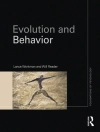Combining rhythmic music and movement with cognitive reflection and mindfulness, this comprehensive handbook shows how drumming and other rhythm-based exercises can have a powerful effect in individual, group and family settings.
Incorporating the latest research on how rhythmic music impacts the brain, this book features over 100 different exercises spanning five key developmental areas: social and emotional learning; identity and culture; strengths and virtues; health and wellbeing; and families, teams and communities. It offers a safe entry to cognitive reflection through fun, experiential rhythmic exercises and is useful for working in settings such as school, child and adolescent counselling settings, mental health and drug and alcohol interventions, trauma counselling and relational counselling. Important sections on the use of metaphor and analogy show how to reinforce experiential outcomes. The book also contains helpful sections on working with specific populations, key facilitation skills and managing challenging behaviours. Downloadable resources such as evaluation forms, certificates and 52 session cards optimise the process of implementing this approach in practice.
Inhoudsopgave
Foreword by James Oshinsky, Ph.D. Introduction. Part One: Theory, Research and Resources. 1. Why Rhythm? 2. The R2R Model. 3. Individual, Family and Group Applications. 4. Working with Specific Populations. 5. Less Talk & More Rhythm – Options for the Non-Verbal. 6. Counselling and Facilitation Skills. 7. Drum-Circle Facilitation Skills. 8. The Context. 9. Resources – What You Need to Get Going. Part Two: Games, Exercises and Applications. 10. A Rhythm Catalogue. 11. The Rhythmic Wave – Mindfulness and Emotional Regulation. 12. Sessional Themes and Rhythmic Exercises. 13. Rhythmic Movement. 14. Rhythmic Voice. 15. Five Key Analogies. 16. Additional Games and Exercises. 17. Reflective Practice and Evaluative Resources. 18. Further Reading. References. Appendices.
Over de auteur
Simon Faulkner is a leading practitioner, trainer and keynote speaker specialising in the design and delivery of evidence-based interventions utilising rhythm to assist with social and emotional learning and recovery from trauma. He has extensive experience of working with different populations, including young people, refugees, people with complex diagnoses such as autism and Asperger syndrome, parents and corporate employees. He developed the multi-award-winning DRUMBEAT intervention, the only music programme to gain a 5 star evidence rating as a mental health intervention and the first to be recognised as an accredited unit of curriculum for social and emotional learning. He lives in Western Australia and delivers training internationally.












